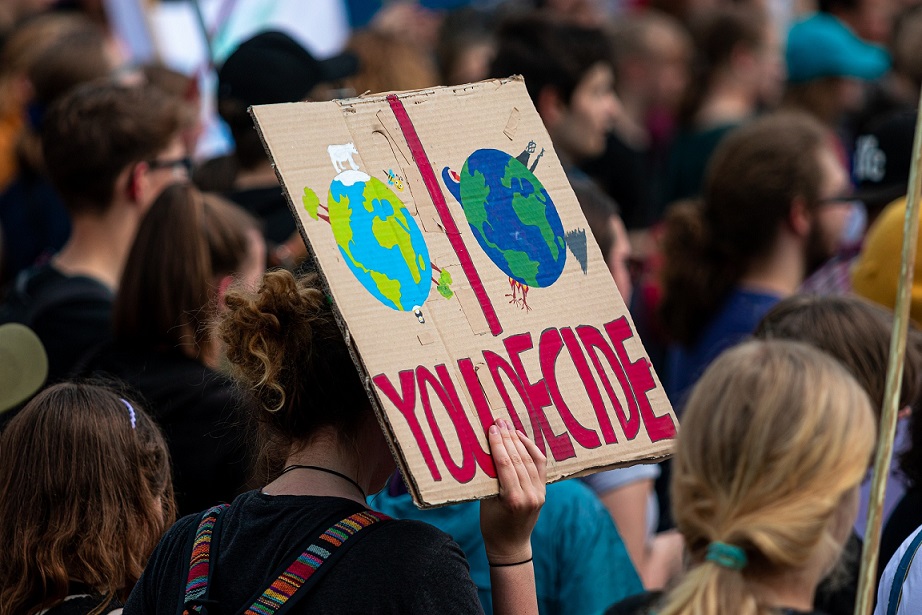The petition the governments of Chile and Colombia have just lodged with the Inter-American Court of Human Rights (CIDH, to use the Spanish abbreviation) on the subject of the climate crisis and human rights opens the way for the high court and other international justice organisations to take note of the psychosocial, economic, cultural and environmental effects of the climate crisis.
 Germán Ayala Osorio
Germán Ayala Osorio
The idea is that they examine them from a human rights perspective, something which implies broadening them beyond the right to having a healthy environment.
Establishing a legal-political relationship between the consequences of the agro-extractive development model on a global scale and human rights would complicate the way states act and emphasise that the narrative of sustainability must overcome the reductionism it has fallen into recently thanks to those who promote it from business and / or corporate perspectives, exclusively tied to economic spheres.
That is, a sustainability conceived more from the viability of business and of capitalism, ignoring the systemic lens through which the effects of climate change must be viewed.
On the contrary, we must talk about a sustainability which is more centred on ecological ethics and biocentrism.
The foreign ministers of Colombia and Chile sent a document to the court of justice highlighting six points, namely:
 “1. Duties of prevention and guarantee in human rights linked to the climate emergency. 2. Preservation of the right to life and survival in the face of the climate emergency in light of what has been established by science and human rights. 3. Differential obligations of states with respect to the rights of children and the new generations in the face of the climate emergency. 4. Consultation and judicial procedures given the climate emergency. 5. Protection and prevention of those who defend the environment and territory, along with women, indigenous peoples and communities of African descent in the framework of the climate emergency. 6. Shared and differentiated responsibilities in states’ rights in the face of the climate emergency.”
“1. Duties of prevention and guarantee in human rights linked to the climate emergency. 2. Preservation of the right to life and survival in the face of the climate emergency in light of what has been established by science and human rights. 3. Differential obligations of states with respect to the rights of children and the new generations in the face of the climate emergency. 4. Consultation and judicial procedures given the climate emergency. 5. Protection and prevention of those who defend the environment and territory, along with women, indigenous peoples and communities of African descent in the framework of the climate emergency. 6. Shared and differentiated responsibilities in states’ rights in the face of the climate emergency.”
If the CIDH accepts the foreign ministers’ petition, as the governments of Chile and Colombia hope they will, we will find ourselves before the judicialisation of the climate crisis which would be nothing short of the revision of the state’s role in the economic ambit. That should, in the near future, legitimise public interventions far removed from the logic of capitalism to arrive, ultimately, at the construction of states which are ecologically and humanly committed to mitigating the effects of climate change through a territorial reordering which addresses ethno-territorial circumstances but which also promotes the recovery of key species (plants and animals) to recover valuable ecosystems.
 Likewise, the states of Latin America will have to undertake, under the CIDH’s close scrutiny, adjustments to the economic model and the transformation of the relationship between human beings and nature.
Likewise, the states of Latin America will have to undertake, under the CIDH’s close scrutiny, adjustments to the economic model and the transformation of the relationship between human beings and nature.
If the court of justice processes the petition lodged by Chile and Colombia and draws up a declaration or even determines binding actions for the states under its jurisdiction, political and ideological struggles will swiftly become tied to sustainability, where this is understood as an educational play related to cultural change of committed peoples in this part of the hemisphere, along with politicians and leaders.
In the end, humanising politics and through this the way states operate will be the consequence of climate change, provided it is approached with the seriousness and responsibility shown in the request for the court’s opinion by the Colombian foreign minister, Álvaro Leyva, and his Chilean counterpart, Antonia Urrejola. It will very probably be possible to read future pronouncements and rulings issued by the court through a lens of political ecology.
 Hopefully the CIDH’s answer will also aim to counteract the naturalisation of posthumanism and postnaturalism, narratives which not only look askance at the climate crisis but also validate the explosion of artificial intelligence (AI), a device with which it is believed that the moral and ethical matters that merge in the climate crisis generated in and during the Anthropocene are overcome.
Hopefully the CIDH’s answer will also aim to counteract the naturalisation of posthumanism and postnaturalism, narratives which not only look askance at the climate crisis but also validate the explosion of artificial intelligence (AI), a device with which it is believed that the moral and ethical matters that merge in the climate crisis generated in and during the Anthropocene are overcome.
*Germán Ayala Osorio: Social communicator, journalist and political scientist, author of the blog La otra tribuna.
(Translated by Philip Walker – Email: philipwalkertranslation@gmail.com) – Photos: Pixabay












.jpg)












